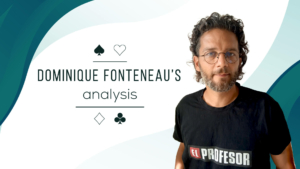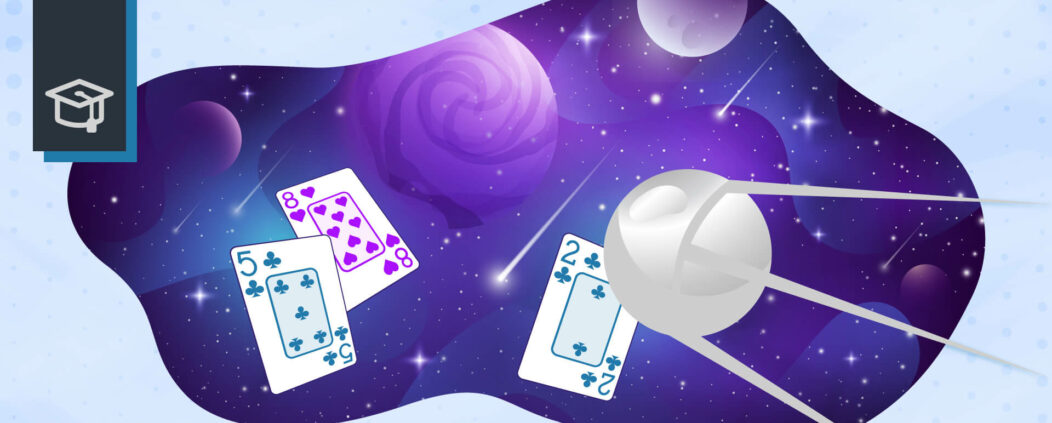
Responder’s Sputnik double
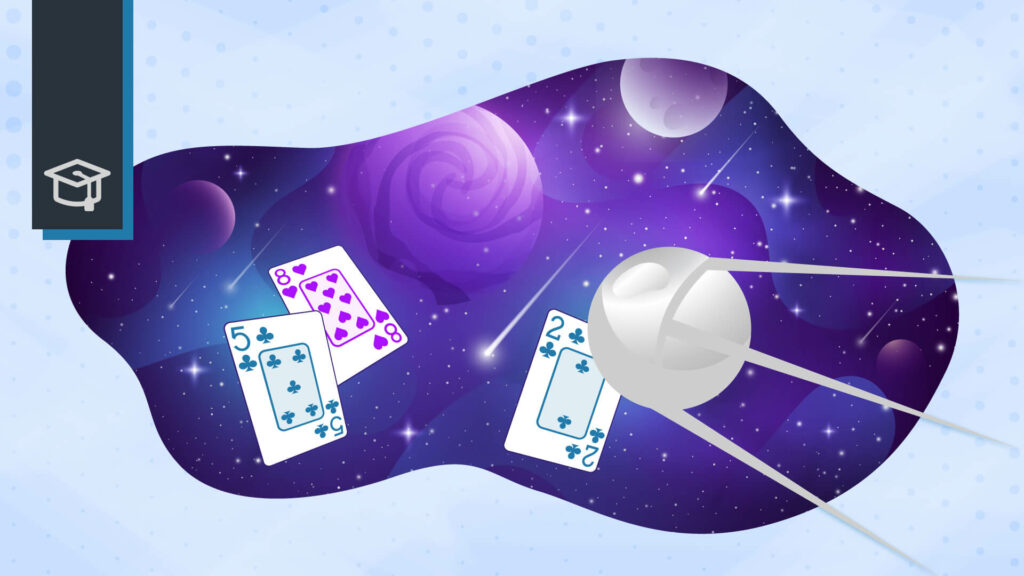
The Sputnik Double does not date from yesterday. It was invented in 1957 by the Americans Alvin Roth and Tobias Stone at the time of the launch of the first satellite, and then very quickly baptized by their compatriot Oswald Jacoby. Our collaborator has broken down his study into four parts. Learn how to get into the right orbit!
Summary
C. After an overcall at the one-level
D. After a one in a major opening and an overcall on the two-level
A. The simple Sputnik double
When an opponent overcalls 1♠ after an opening of 1! or 1♦, a 1♥ response beco-mes impossible. Sputnik, one of the oldest conventions, thus replaces this 1♥ bid with a Double:
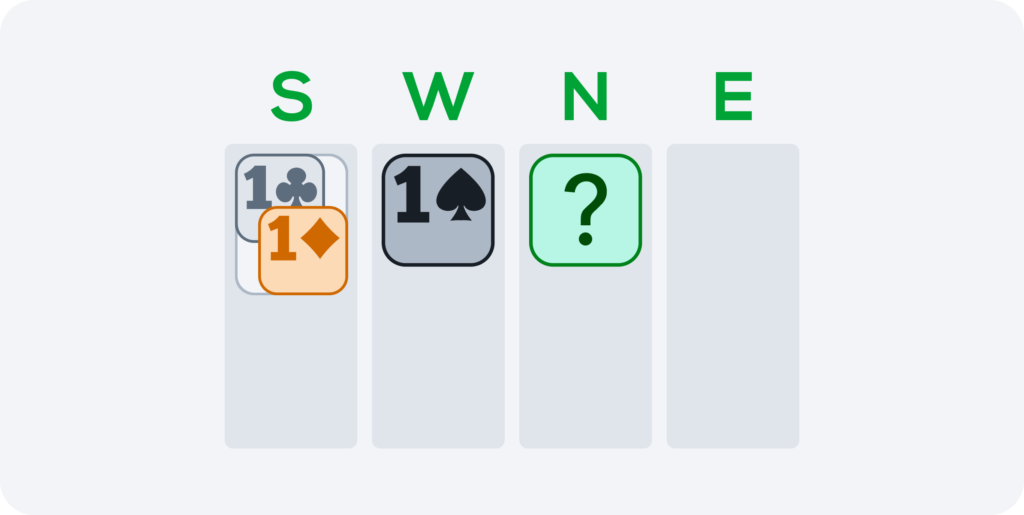
Double➔I would have answered 1♥ without this overcall.
1. Conditions of use
In competitive auctions we see the concept of “free bids” appear. North must reply 1♥ to an opening of 1♣️ or 1♦ with 5-7HCP in order to reach game opposite 18-19HCP. After the overcall, this is no longer necessary. South now gets to speak again and will be able to show his strength. Sometimes the response of 1♥ can also be tactical, with a very weak hand, to hinder the opponents in their quest for a game contract or a bet-ter low-level part-score.
Example:
♠️ J 10 8 4
♥ K 10 8 6 5
♦ 9 3 2
♣️ 5
There is more to gain than to lose by re-ponding 1♥ to 1♣️. But these weak bids are no longer possible after the 1♠ overcall: North must pass. Hence a first fundamental principle:
Rule
You need at least four Hearts and at least 7-8HCP to double the 1♠ overcall.
The Sputnik Double is conventional and must not replace a satisfactory natural call. With five Hearts and 11+HCP or six Hearts and 8-10 HCP, responder bids his Hearts on the two-level.
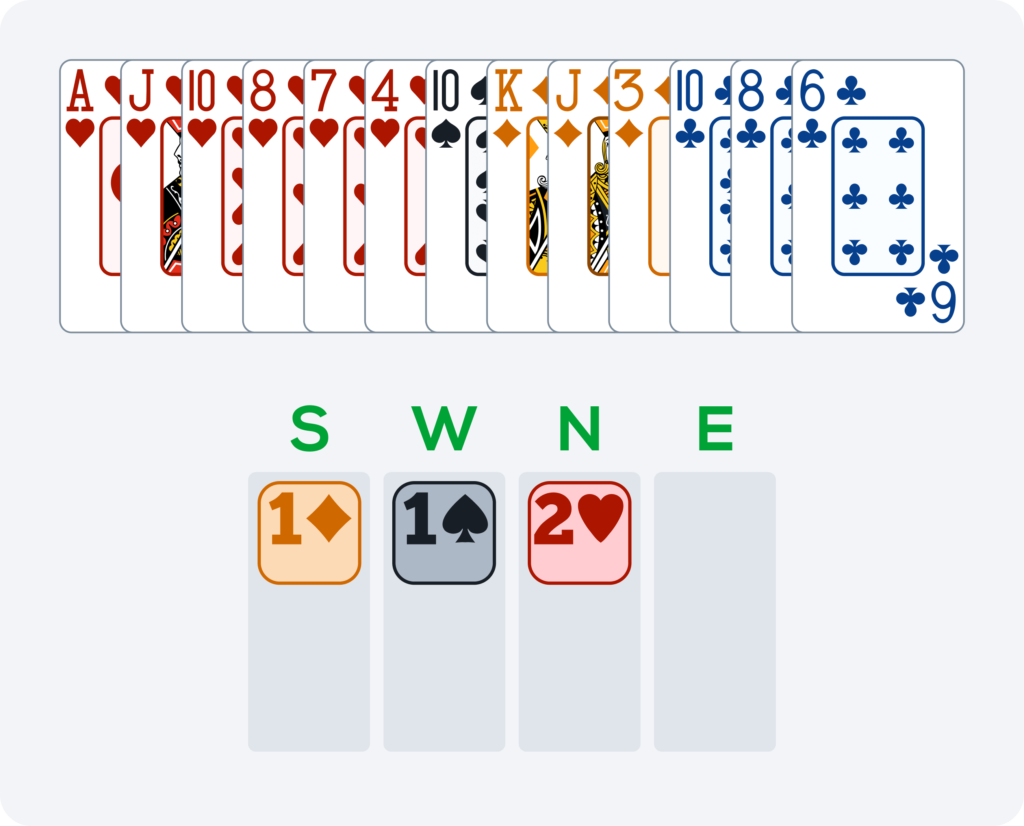
In the same vein, if the Sputnik Double replaces the 1♥ bid, it cannot be justified when responder is about to make a bid other than 1♥ in response to the opening, despite his four Heart cards.
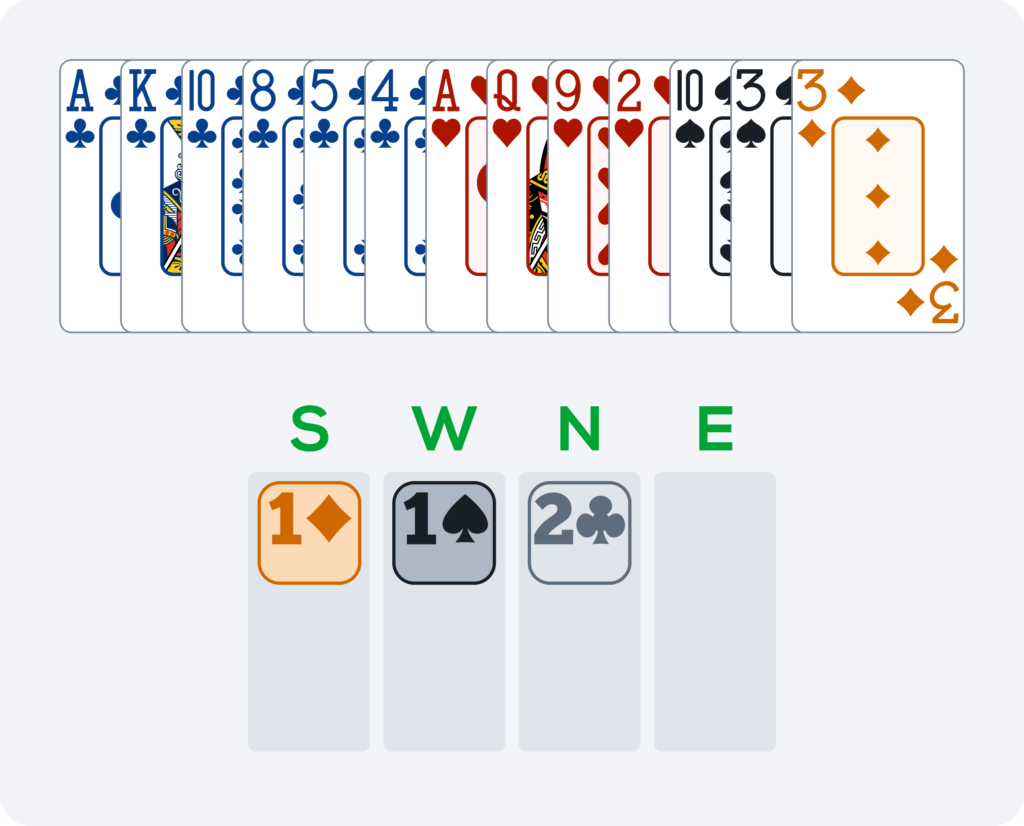
The same applies if you exchange opener’s and responder’s minors.
Hence this second fundamental principle:
Rule
When the opponent overcalls 1♠ and responder has 11+HCP, his priority is to show his suits (five cards or more) at the two-level.
We can therefore formulate this definition of a simple Sputnik Double: The Sputnik Double promises either 8+HCP (with no upper limit) and four Hearts or 7-10HCP and five Hearts.
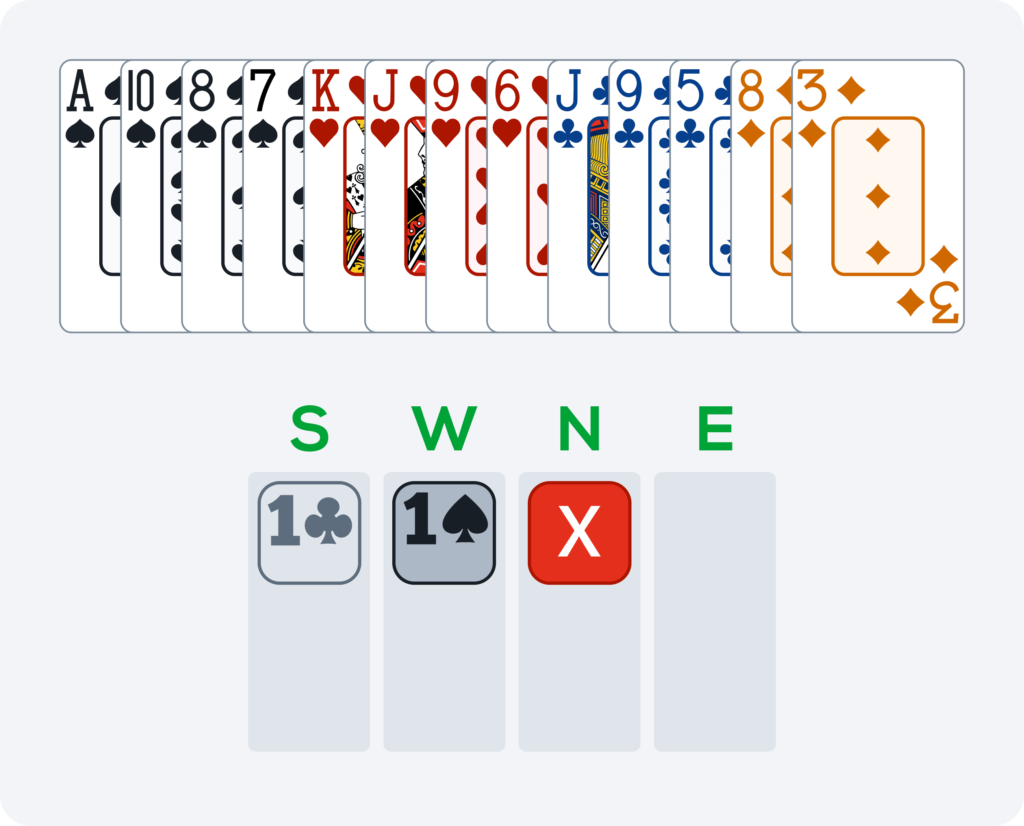
The four-card Heart suit has priority, No-trump can wait.
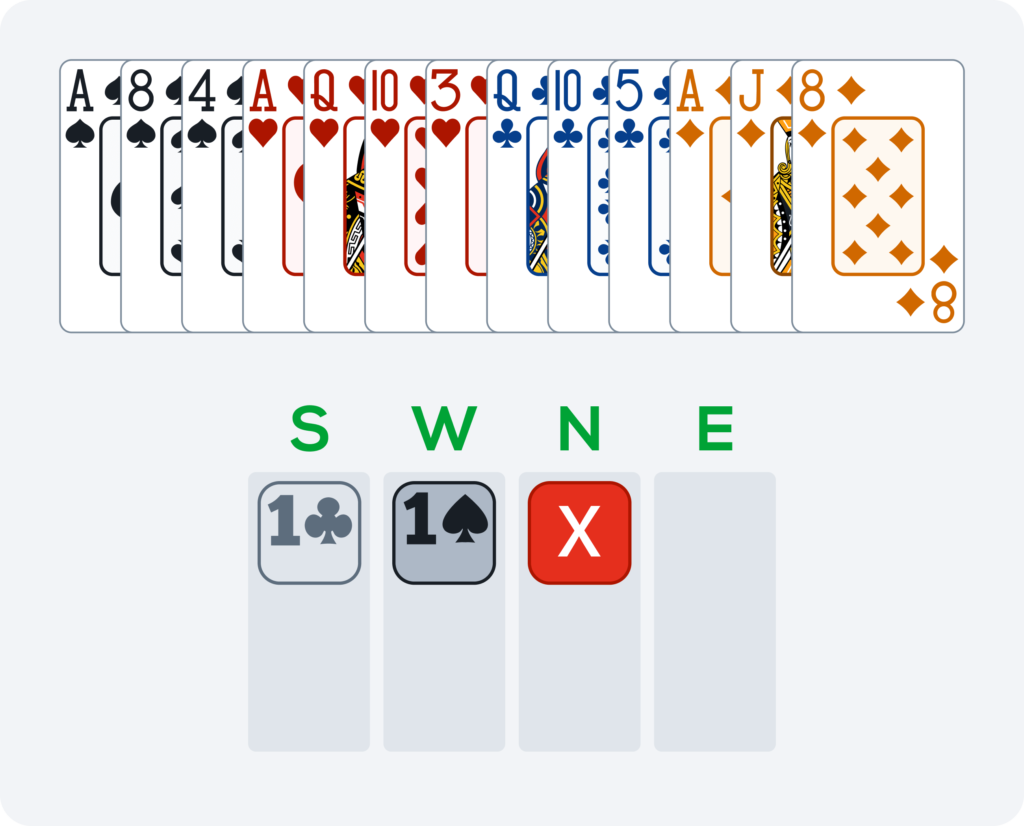
The Sputnik Double is unlimited; a cue-bid would deny four Hearts.
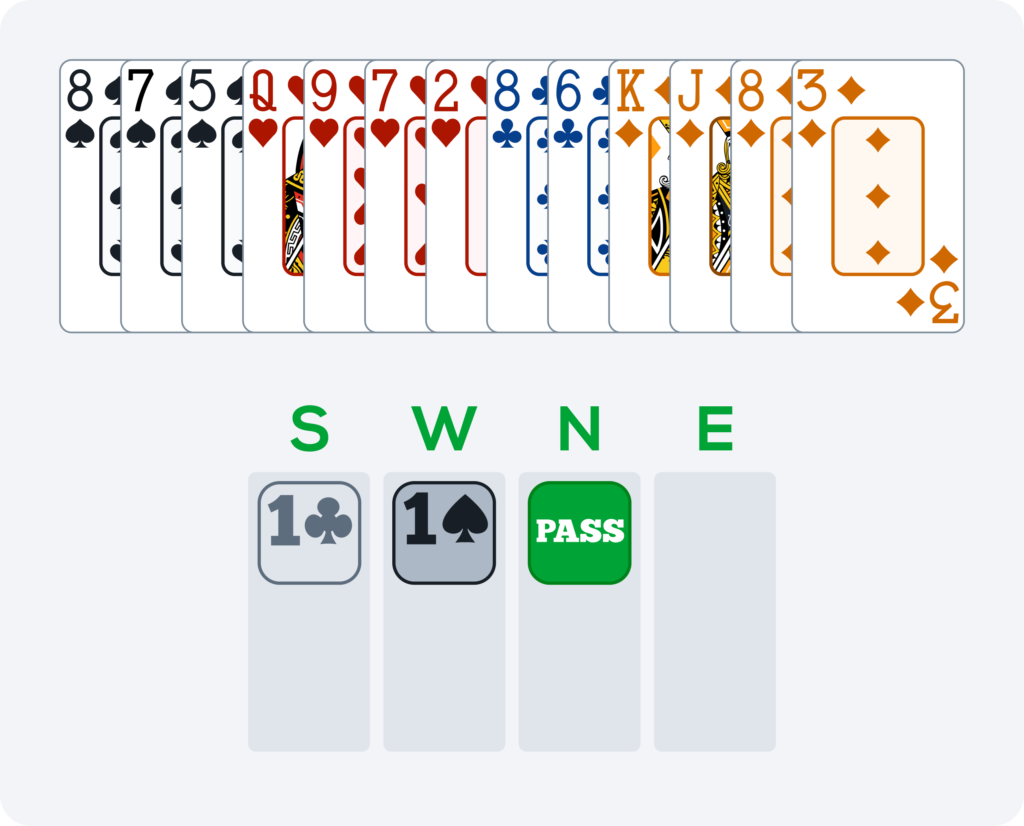
One has to know to pass with only 6HCP.
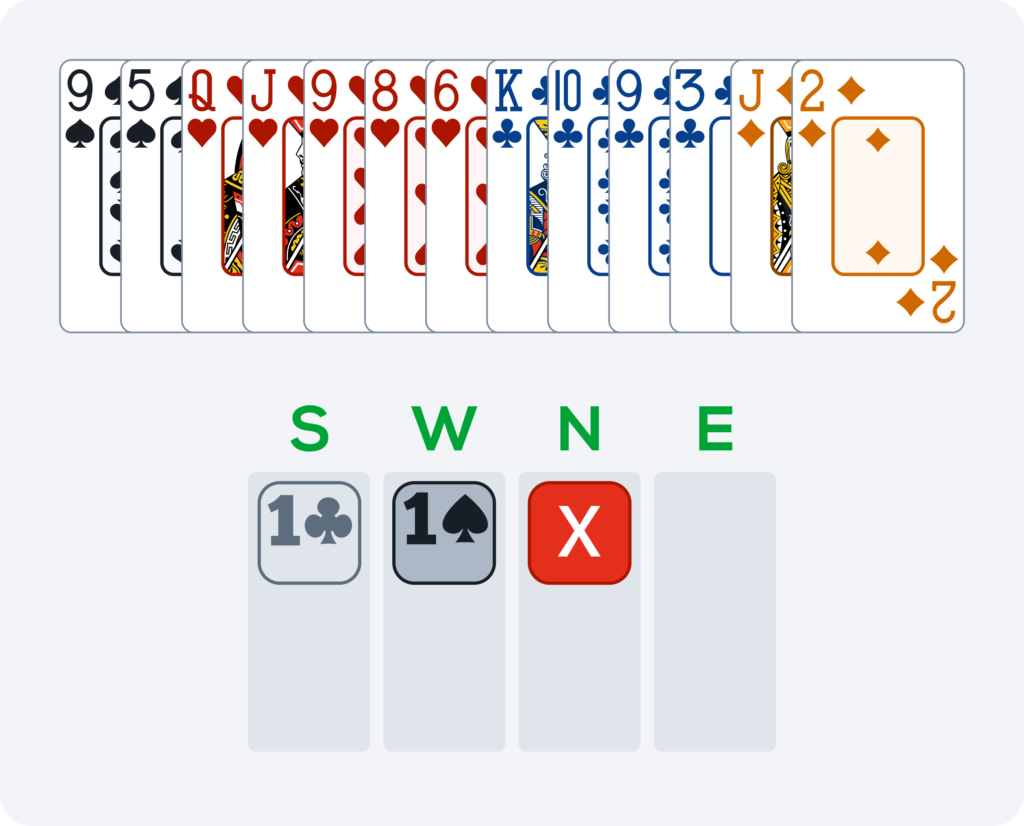
This is acceptable with 7HCP because of the fifth Heart and a two-suited distribution.
2. Opener’s actions
→ WITH FOUR HEARTS
Opener’s priority is to raise the Hearts shown by his partner’s Double when he has four cards. The minimum range for a Sputnik Double is two points higher than the one for a 1♥. reply. It follows that the point ranges for opener’s raises are changed.
- At the two-level:
With 12-14HCP balanced or 11-12HCP unbalanced.
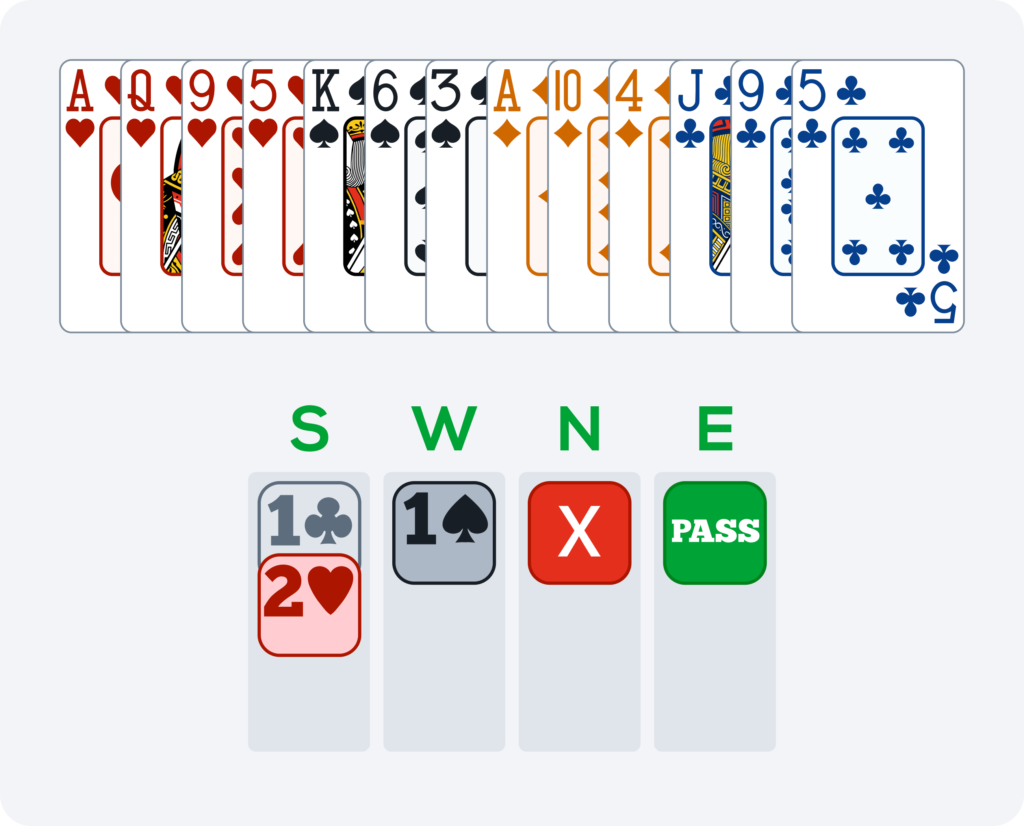
The maximum of the first zone, but no distributional values.
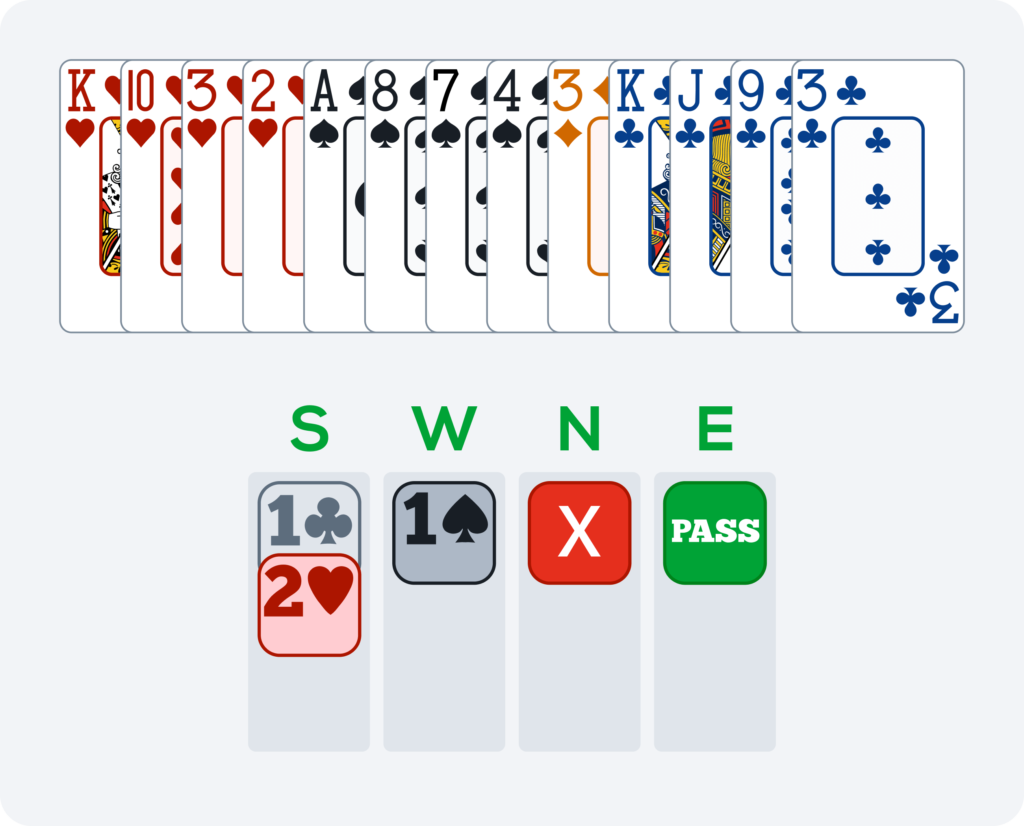
You have useful honors and a singleton Diamond, but that is not enough to justify a jump raise.
- At the three-level:
With unbalanced hands in the range immediately below a 1NT opening, so 13-14HCP.
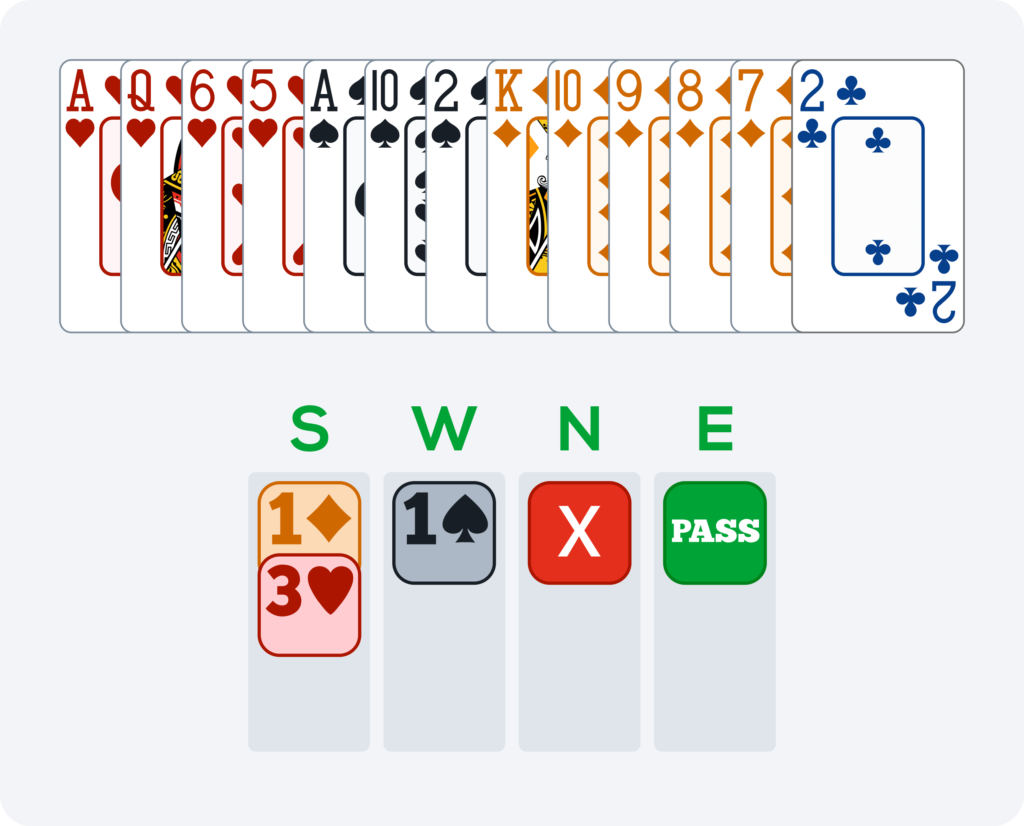
- At the four-level:
Like at the three-level with unbalanced hands, now in the 1NT range (or even a little below), with 6-4 distribution. The message is simple. Opener considers that it is his duty to jump to game facing four Hearts and at least 8HCP.
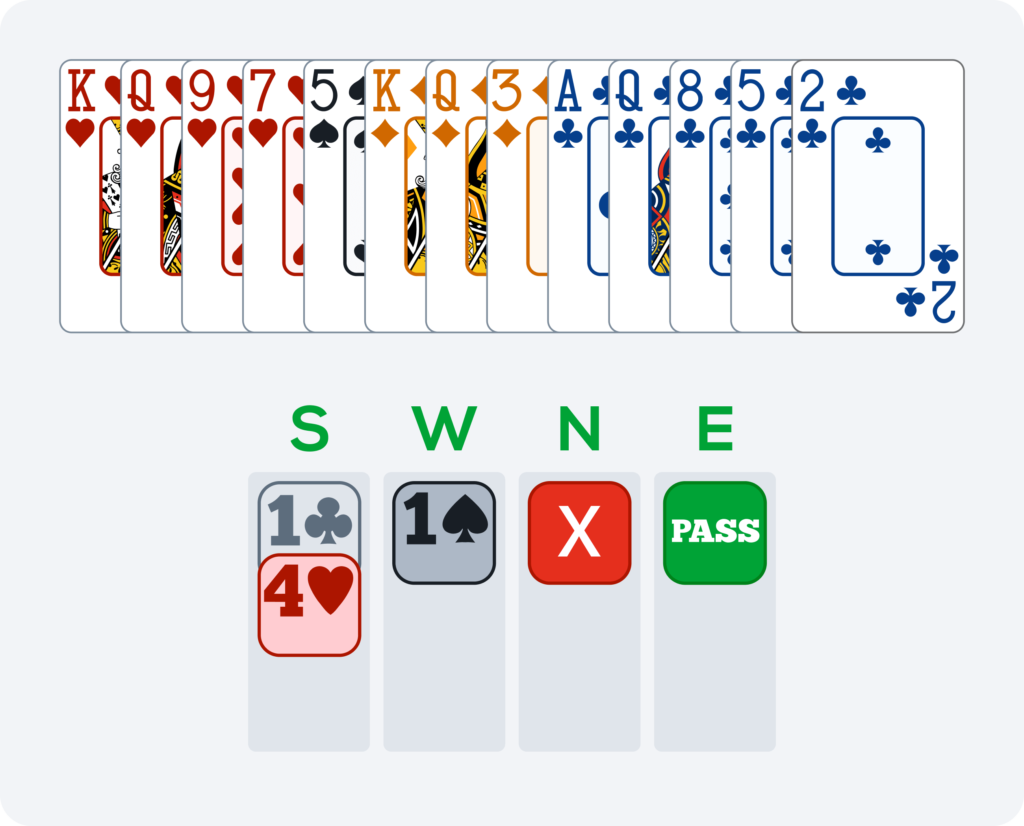
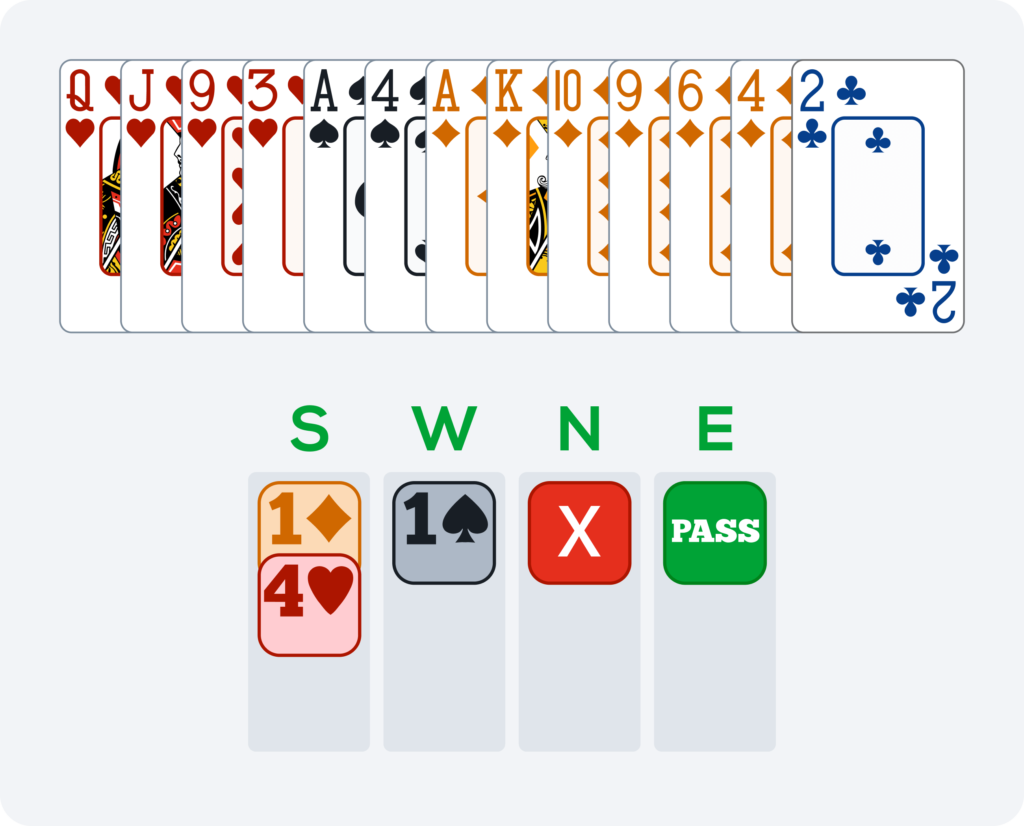
- With 18-19HCP, balanced:
Opener begins with a cue-bid at 2♠ and then may jump to 4♥. Example: ♠J10 ♥AK106 ♦AQ9 ♣️AJ76. Careful, the cue-bid does not promise Heart support. It is also used to ask for a Spade stopper and responder has to give priority to the answer to this question.
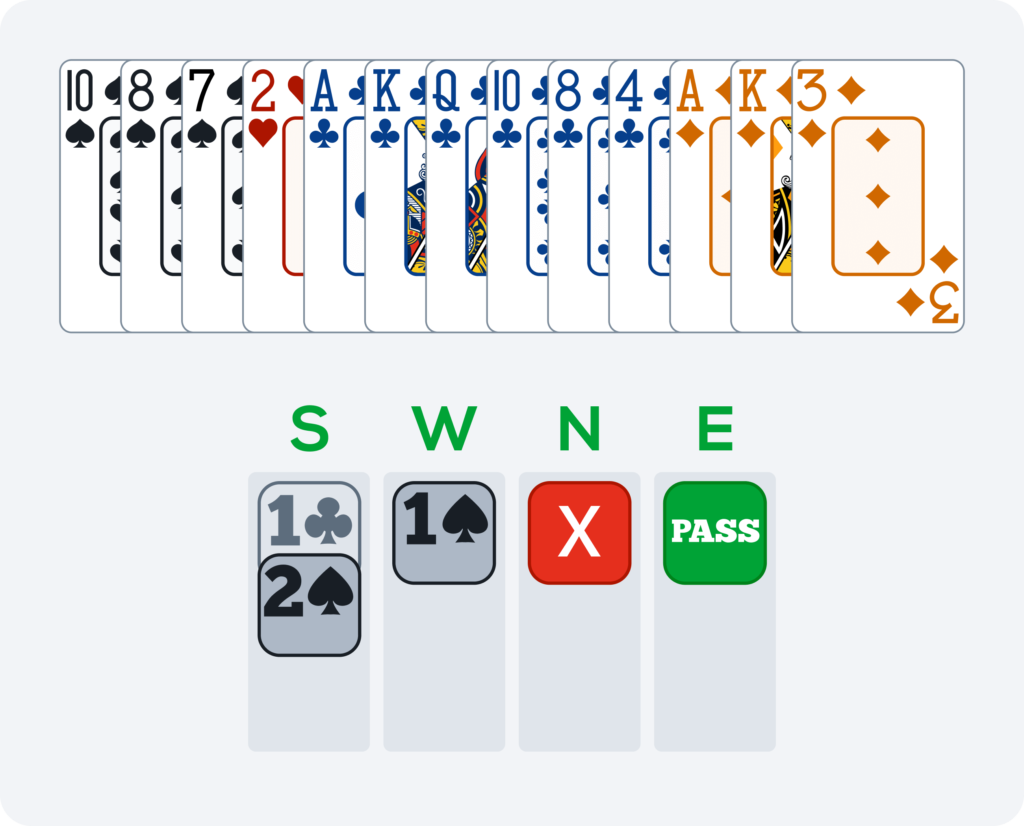
→ WITHOUT FOUR HEARTS
- No-trump bids:
– 1NT
12-14HCP, balanced, with or without a Spade stopper. Reminder of an important principle:
Règle
In competitive auctions, the 1NT bid promises a stopper when it is made behind the overcall, it doesn’t promise one in front of it.
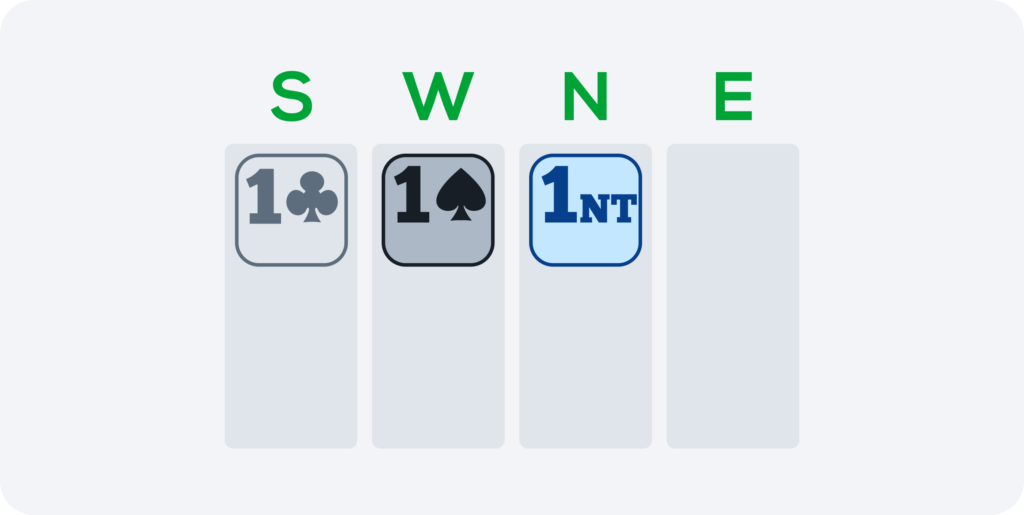
With a Spade stopper.
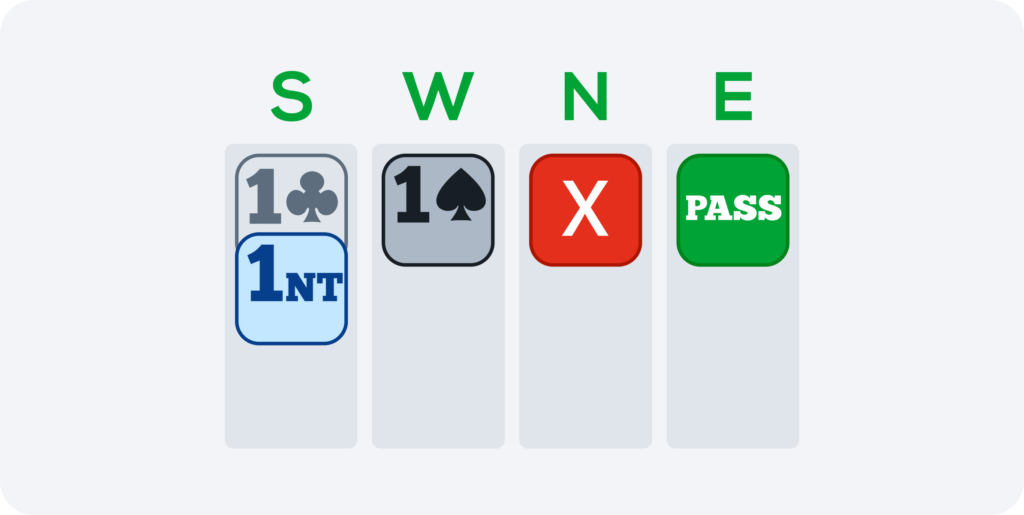
With or without a Spade stopper.
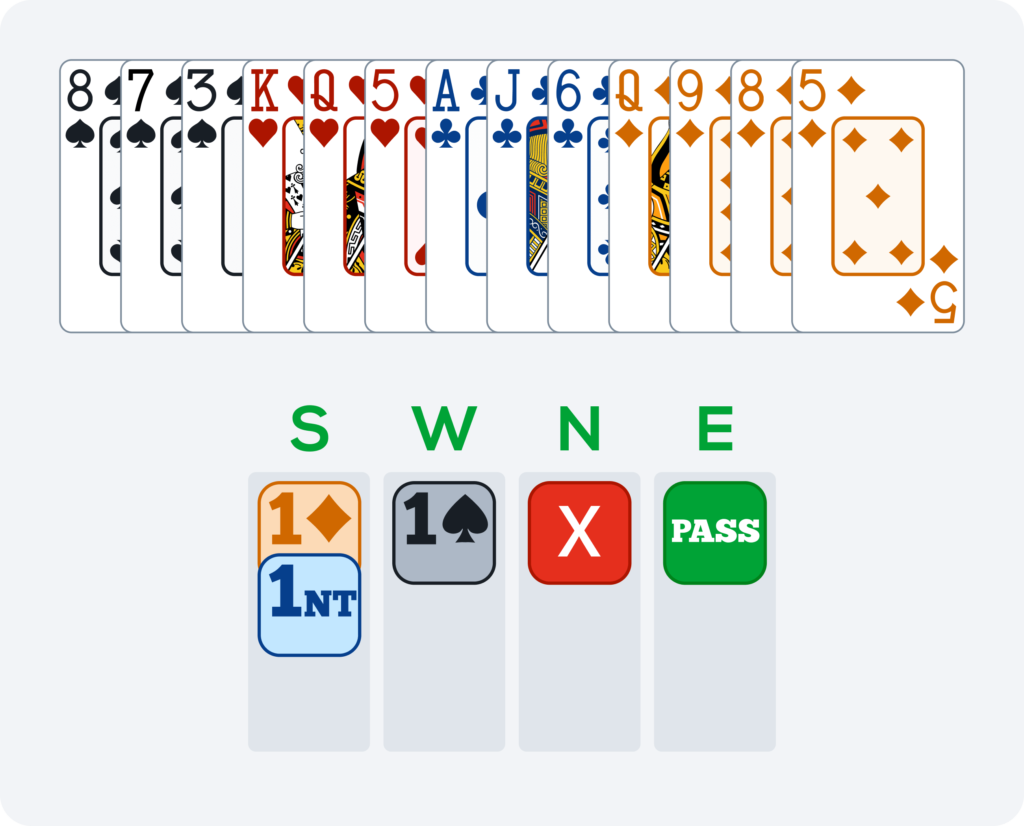
– 2NT
15-17HCP, unbalanced, with a singleton Heart and a good Spade stopper. In this range, South cannot have a balanced hand because he did not open 1NT. The singleton must not be in the suit that is suggested by partner’s Sputnik Double.
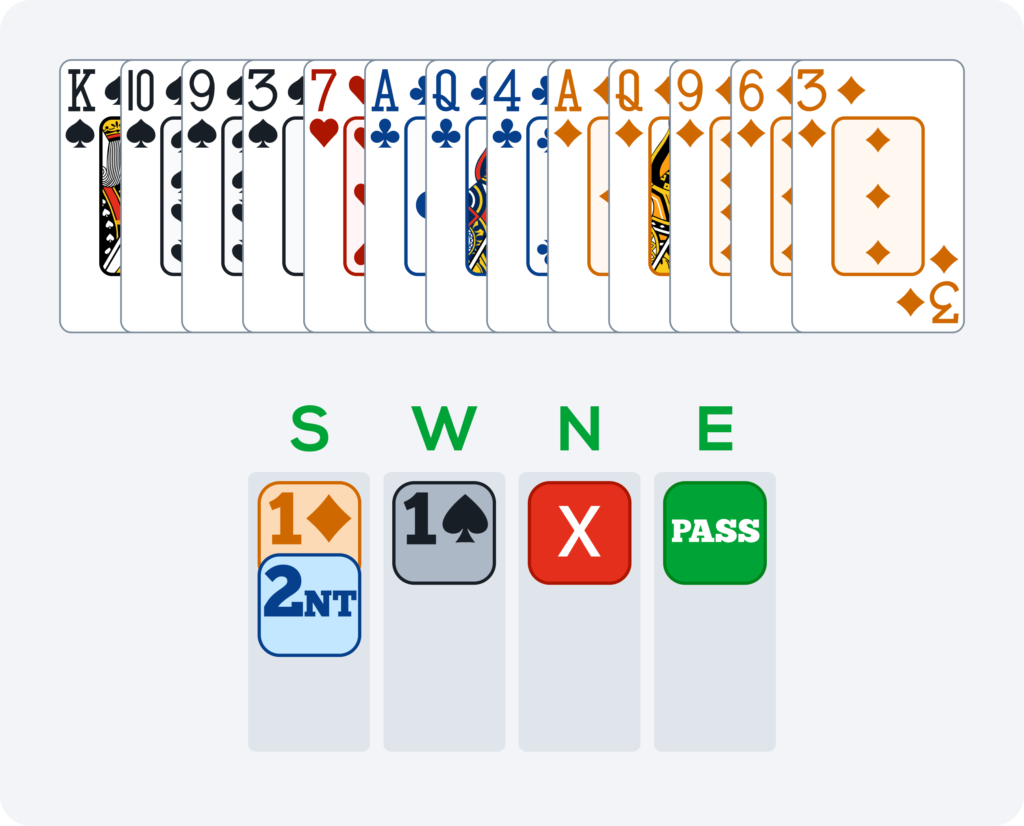
Comment
With a singleton in the other minor, opener will have to choose between repeating his minor with a minimum (15HCP) and making a cue-bid with a maximum (17HCP).
– 3NT
18-19HCP balanced, with a Spade stopper. With the same distribution but without a stopper he makes a cue-bid.8-19H réguliers, avec une tenue à Pique. Avec cette même distribution sans tenue, il fait un cue-bid.
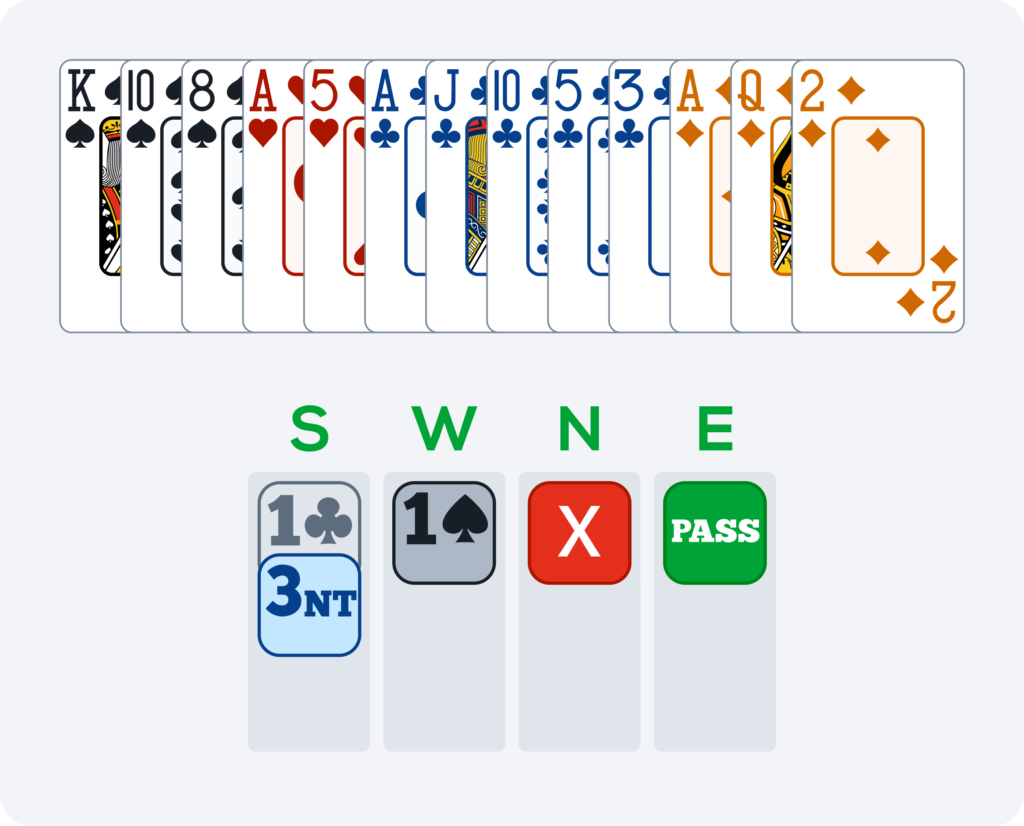
Comment
Before signing off in 3NT, opener can also rebid 2♠, hoping to find a 5-3 Heart fit.
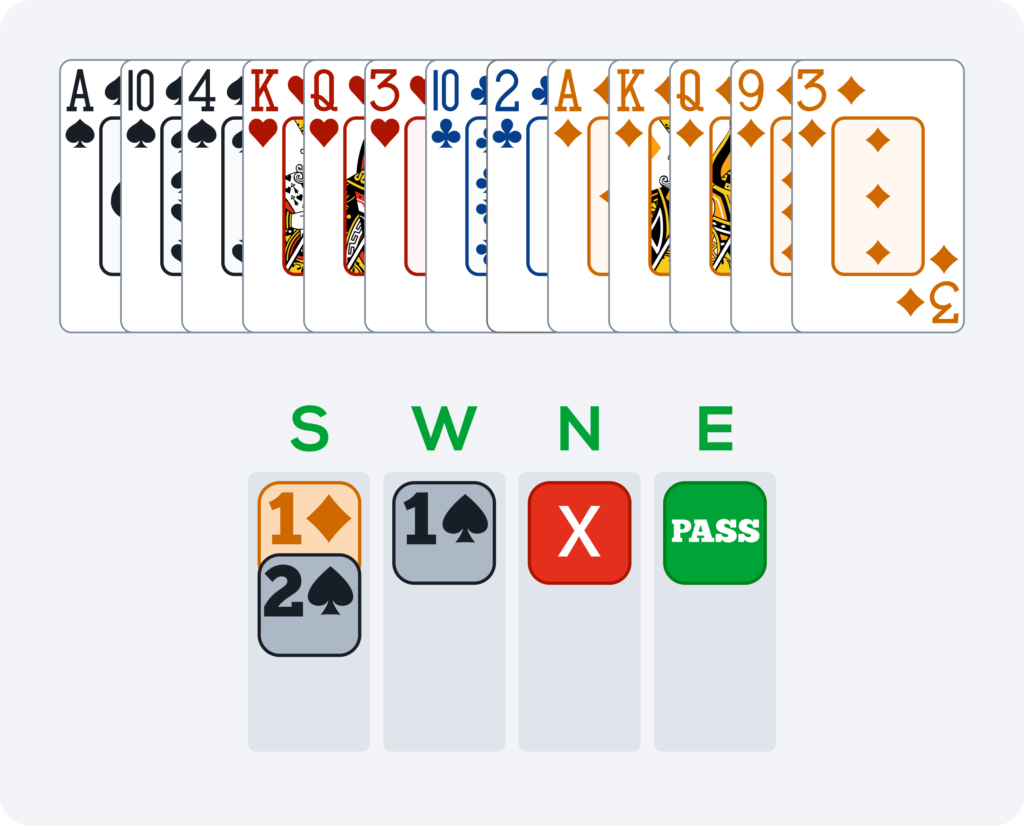
- Opener’s other actions:
– Opener rebids his minor
Without a jump
A hand in the first zone, most of the times six cards or five cards and an unbalanced hand.
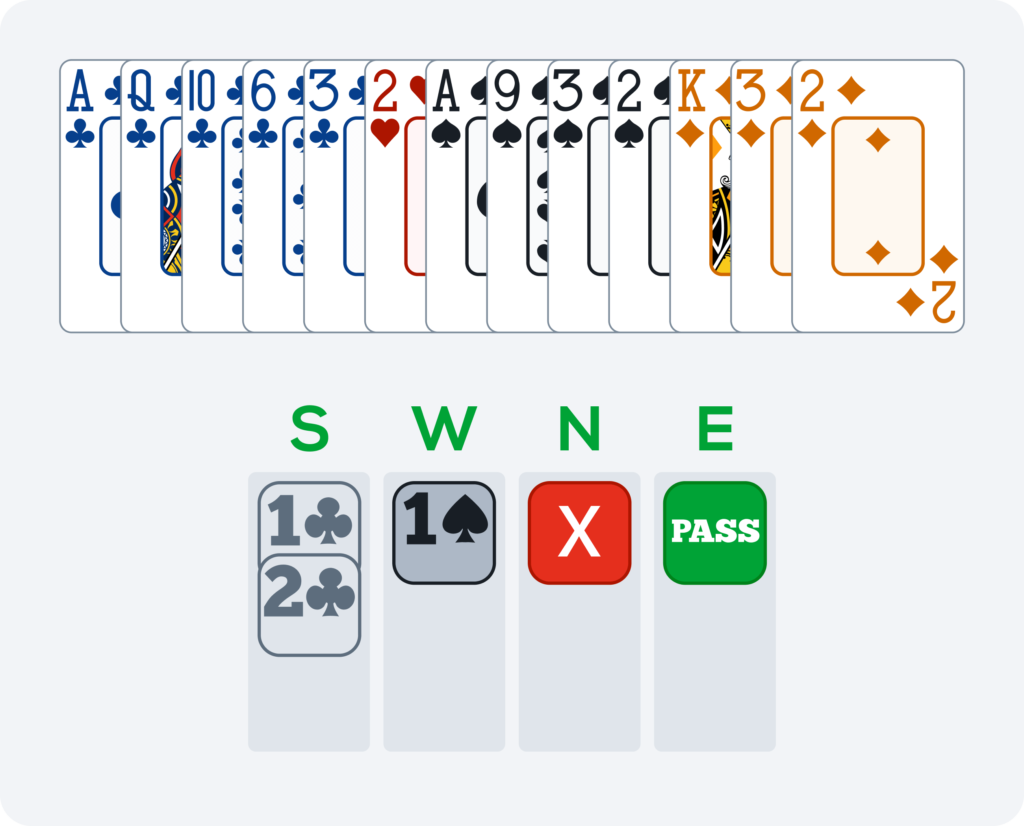
With a jump
Always six cards, 13 (good)-15HCP. With 16HCP and more you have to make a cue-bid or jump to 2NT. The absence of a 1NT opening should suggest an unbalanced distribution.
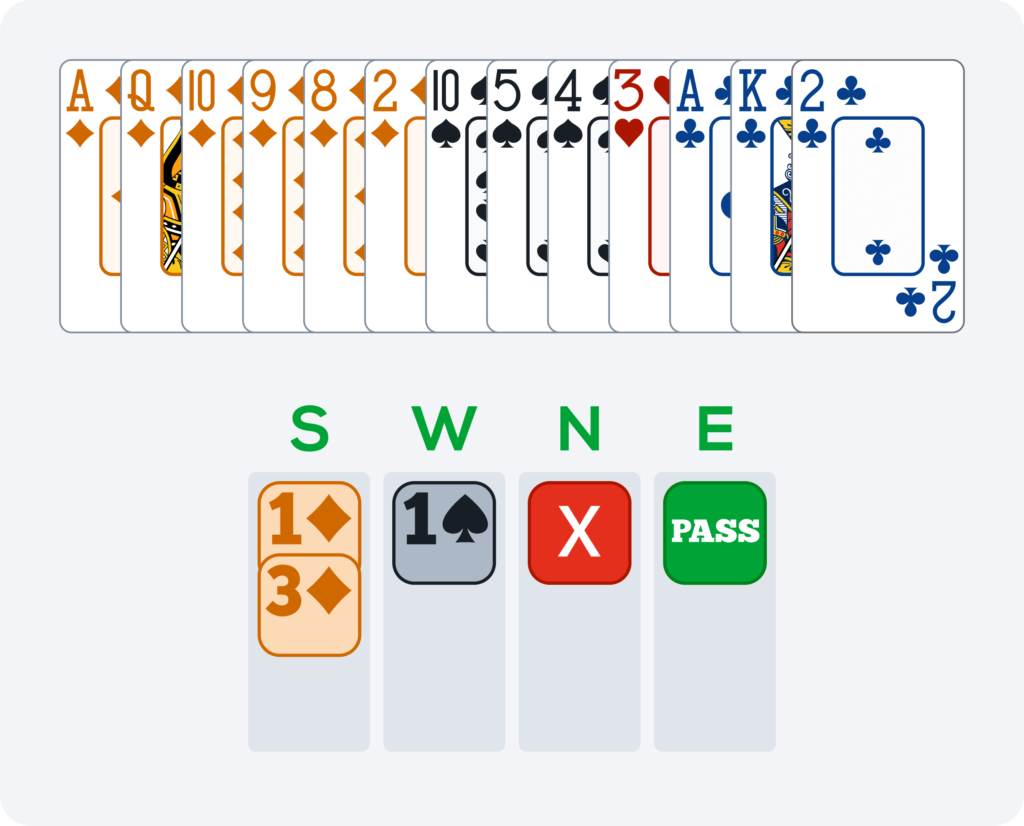
To encourage North to say 3NT.
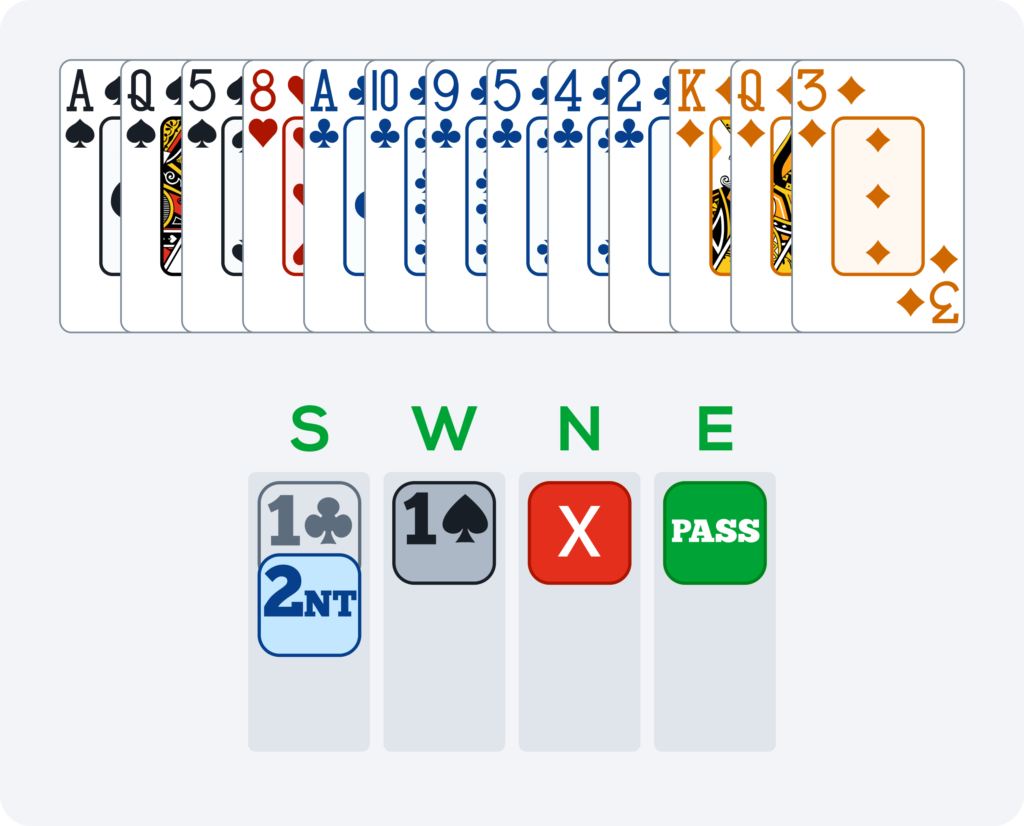
The bid that best describes the hand.
– Two-suiter bids
Simple Two-suiters
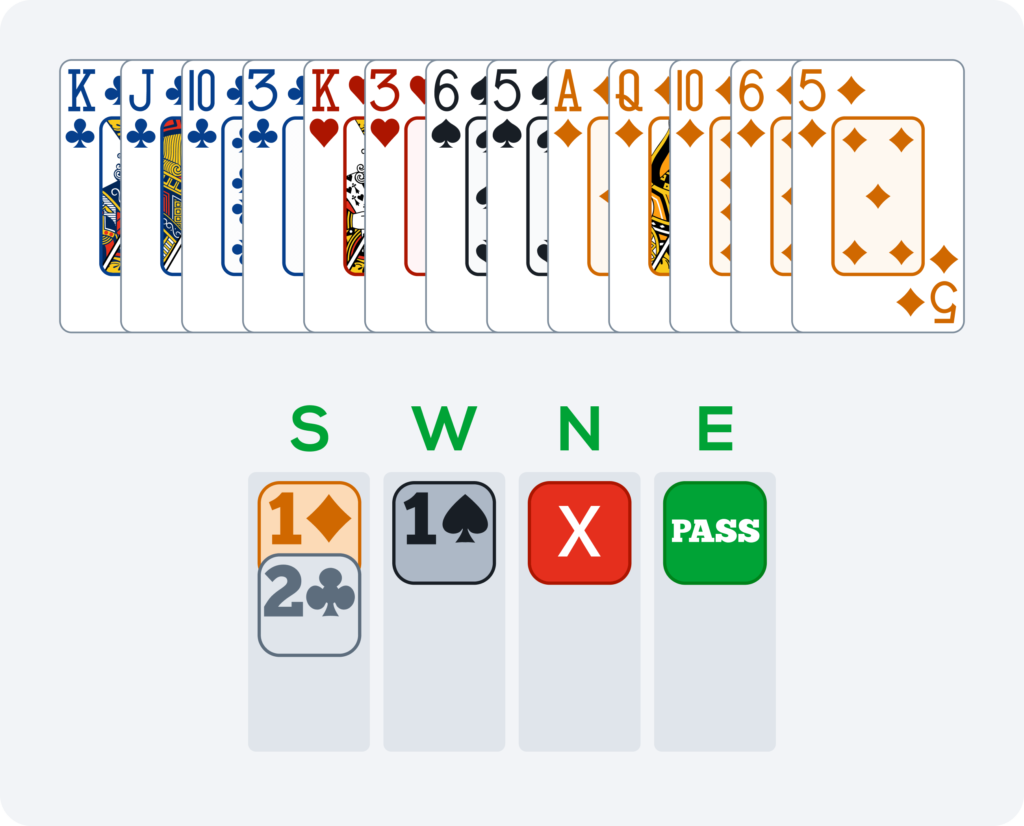
Classic, 12-16HCP, nine cards in the minors.
Reverse Two-suiters
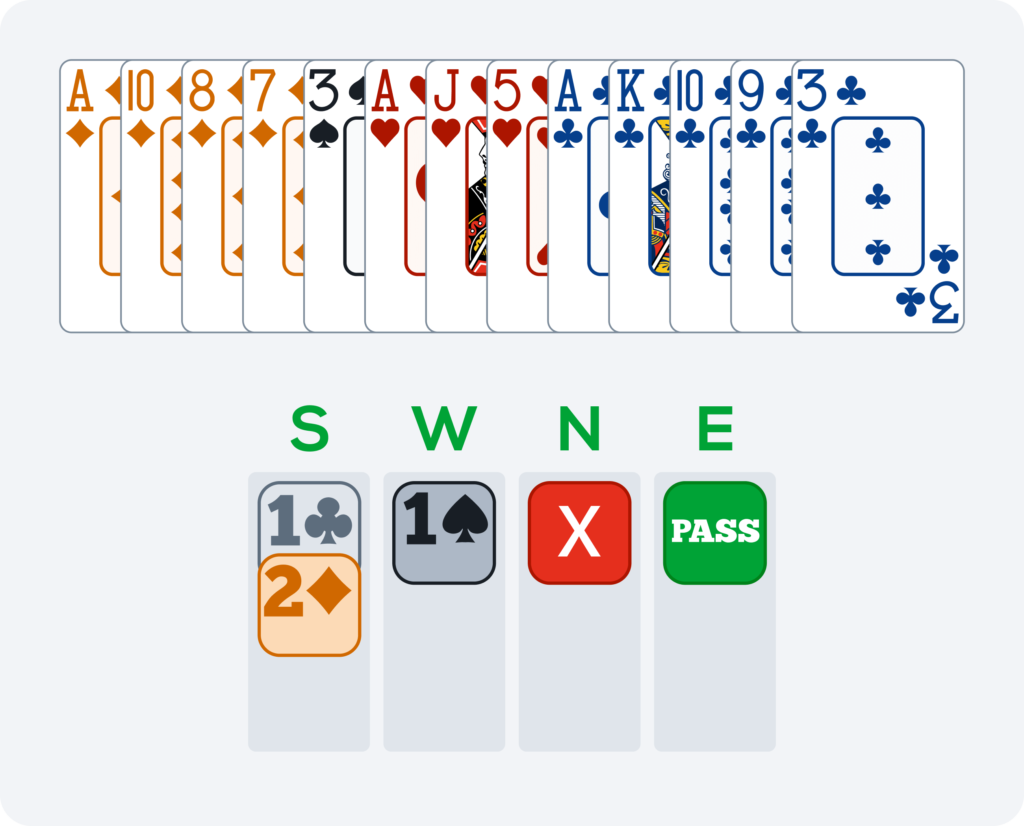
This is not a raise – remember: the Sputnik Double does not promise anything in Diamonds – but the execution of a reverse two-suiter, lowered by two points: 16+HCP.
Jump two-suiters
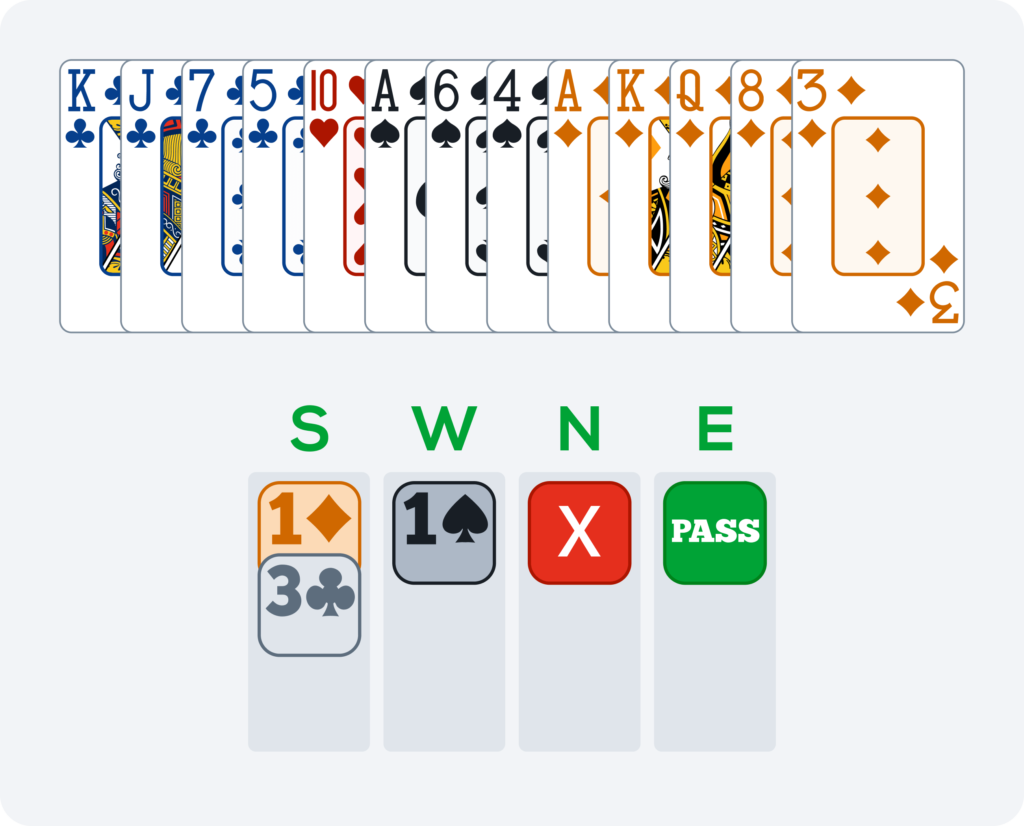
Game-forcing, at least 17HCP. Opener may have five Clubs, but this jump does not promise them.
Remember
The Sputnik Double concerns four situations: A) 1m-1♠-Double; B) a Double after all other suit overcalls at the one-level (for example 1♣️-(1♦/1♥)-Double or 1♥-1♠-Double); C) the Double after an overcall at the two-level over a one of a major opening (1M-2m or 1♠-2♥); D) the Double after 1♦-2♣️.
Remember
1) After the start 1m-1♠, the Double promises four Hearts and at least 8HCP without upper limit. By inference, the cue-bid (2♠) categorically denies four Hearts.
2) After the start 1m-1♠-Double, opener raises Hearts to the appropriate level if he has four cards unless holding 18-19 HCP balanced where he starts with a cue-bid of 2♠ before possibly jumping to 4♥.
B. The sequence 1♦-2♣️-Double
You need a Funbridge Premium+ subscription to keep reading.
Please log in with a Premium+ account to read the full lesson.


